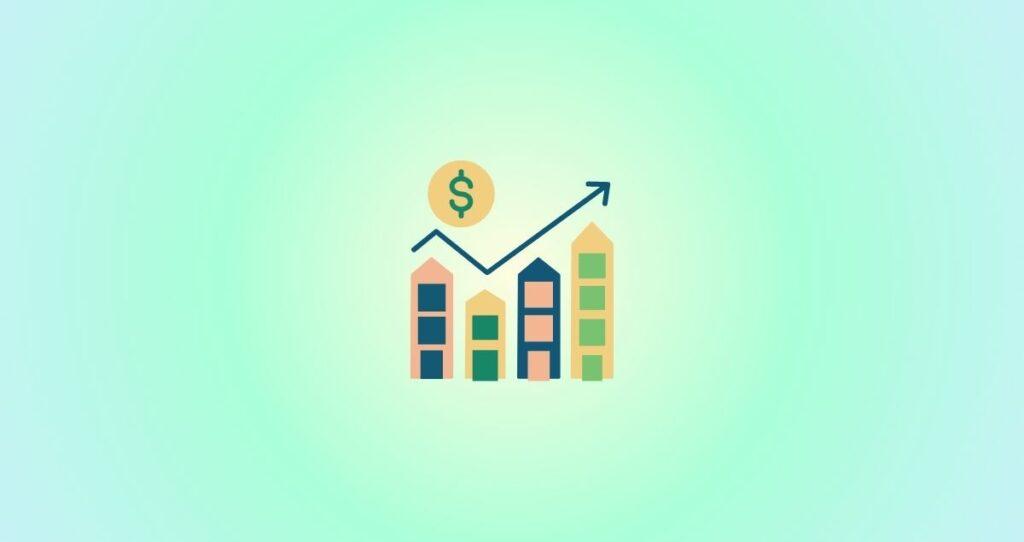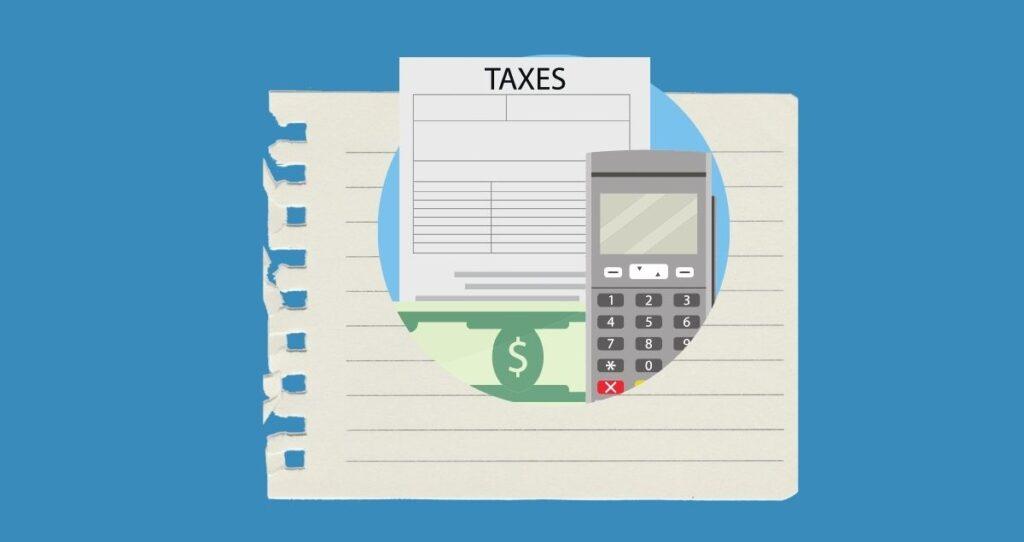Investing can feel intimidating, especially if you’re just getting started. But the truth is, there are plenty of low-risk options that can help you grow your money without unnecessary stress. This post will break down the best places to invest, from secure savings accounts to beginner-friendly investments with strong long-term potential.
Whether you’re just starting out or looking for secure ways to diversify your portfolio, this guide will help you make informed decisions that align with your financial goals.
What is investing?
Investing is when a person or institution allocates money in assets and other securities, hoping to sell them later for a profit. A good investment will make you money, whereas a bad one will cause you to lose money.
Successful investors focus on assets that generate the highest returns while minimizing risks. Risk tolerance varies from investor to investor. People with a lot of disposable income tolerate risks better than those with limited income.
There are many places to invest money, and the type of investment you pick depends on the following factors.
- Your financial goals include retirement, short-term and long-term savings goals, college education savings, travel goals, and a house down payment.
- Your risk tolerance, which is a measure of how much you are willing to lose
- Investment time horizon, which is a measure of how long you want to stay invested.
The main question is where you should invest your money.
There are a lot of investment options to choose from. Unfortunatly, most of these investments are confusing and don’t offer good returns. So, how do you choose the best investment that works for you?
This post highlights the best places to invest money and the most profitable investments to buy, especially for beginners.
Without further ado, let’s get started.
>>MORE: How to start investing money as a beginner?
1. Invest money in the Stock Market
The stock market is one of the best investment options you can consider. It is easy to get started, and the return on investment is relatively high. Here are quick steps to start investing in the stock market.
- Decide why you need to invest in the stock market.
- Learn the basics of the stock market.
- Decide on your stock market investing strategies. (1) day trading, (2) swing trading, or (3) long-term. You can also use a combination of these methods.
- Save some money to start with
- Open a brokerage account. There are many brokers to choose from, such as Fidelity, Charles Schwab, Robinhood, Interactive Brokers, E-Trade, etc.
- Deposit money in the account
- Start buying stocks.
Stocks come in many forms, sizes, and qualities. The reason you have decided to invest in the stock market will help you pick the right stocks.
The most popular ways to invest in stocks are to buy either dividend or growth stocks.
- Buy dividend stocks. These stocks will give you dividends on every earnings season. Most companies report earnings and offer dividends every quarter. Remember that corporations can increase or cut dividends depending on their financial situation.
- Invest in growth stocks. Growth stocks focus on growth, product development, and expansion. Some of their characteristics involve strong earnings and steady share price growth.

You might also like the following tips.
- 14 reasons people lose money in the stock market
- How to start investing with little cash in 10 simple steps?
2. Invest money in Exchange Traded Funds (ETFs)
Investing in the stock market can be a little risky. A stock can double or triple in value or be cut in half in a single day. Individual stocks are usually sensitive to market news and economic conditions, which justify high volatility.
Large-cap stocks are less volatile compared to penny stocks. As an investor, you should know your risk tolerance. A risk tolerance determines how much risk you can handle without affecting you financially or psychologically. Click here to learn about different types of stocks to buy.
What if you don’t like volatility?
In this case, investing in Exchange Traded Funds (ETFs) will be a great choice. ETFs are funds that bundle a lot of stocks under a single entity. When you buy an ETF, you are pretty much buying all the stocks in the fund, allowing you to minimize risks.
ETFs are listed on stock exchanges like the New York Stock Exchange, and you can trade them like stocks. You can buy and sell ETFs anytime as long as markets are open. The stock market’s regular hours are 9:30 AM to 4:00 PM EST.

4. Invest in Real Estate
Real estate has many investment options. The following are popular ways to invest in real estate, especially if you are getting started.
- Invest in REITs. Real estate investment trusts(REITs) are businesses that own other income-generating real estate. Most REITs own, manage, and operate apartment complexes and office buildings. Some REITs are publicly traded; you can buy their shares on major stock exchanges like the New York Stock Exchange. A REIT could benefit you if you like real estate and don’t want to buy a physical building.
- Invest in rental properties. Another great way to invest money is to buy rental properties. The secret to the rental property business is to start small and learn your way up. Your portfolio can have condos, townhouses, single-family, or multifamily properties. Multifamily properties are more profitable and have faster cash flow than other types of rental properties. However, they tend to be expensive for small investors. Most people start with single-family homes and then upgrade to properties with more units later.
- Make money flipping houses. Flipping houses is an active way to invest in real estate. When you flip homes, you buy them for less and resell them after minor renovations for quick profit. To succeed as a house flipper, you must focus on fixer-uppers, which are houses that require some renovation before you put them back on the market.
- Rent out a room: Do you have a house with an extra room? If so, you can make money by renting it out to a tenant.
- Buy your own home. Buying a house could be a great way to start investing in real estate. By doing so, you benefit through appreciation and the chance to build equity in the property.

The following article can help you get started with investing in real estate.
MORE: How To Invest In Real Estate?
5. Invest in Bonds
A common way companies raise money is by issuing bonds. Buying a company’s bond means you are giving it a loan. In exchange, you will receive a payment of your face value (principal) plus interest on the maturity day. As noted by Vanguard, most companies pay interest on issued bonds twice a year.
Unlike stocks, which represent ownership of the company, you do not have ownership in the company that offered you a bond. This limits the benefits you can have from the company. For example, if you own shares of company XYZ, you will gain if the stock goes up and lose if the price goes down. In addition, you could claim ownership of the company’s assets or earn dividends. As a bondholder, on the other hand, you will not gain or lose the principal regardless of the share price fluctuations.
The following are common types of bonds you can purchase.
- Corporate bonds. Corporations issue corporate bonds to raise money for expansions, research, product development, etc.
- Government bonds. Government bonds are issued by the government and return on average 5% to 6% historically, according to CNN Money. Although the returns are not that great, you would have the safety of your money and protection from inflation.
- Municipal bonds. Local governments issue these bonds to fund local public projects such as building hospitals, schools, roads, etc.
- Agency bonds. These are bonds issued by government-supported agencies such as Fannie Mae or Freddie Mac.
Other common bonds include foreign government bonds and convertible bonds. As an investor, you should do enough research to know which ones best fit your investment style.
A complete guide to investing in bonds
6. Invest in Mutual funds

Mutual funds are a type of investment that allows investors to pool their money together to purchase investments that would be otherwise difficult for individual investors to achieve.
Most mutual funds invest in bonds and stocks as investments. However, other investment options are considered depending on the fund’s mission and the risk it is willing to take. All assets held by a mutual fund form a portfolio.
Mutual funds are professionally managed. For this reason, all investors pay fees and other charges that support the fund’s operations. These charges are usually a percentage of the investors’ account values. You can also invest in passively managed funds, which cost less money.
When investing in Mutual Funds, you might get a lower return on investment because some of your earnings are used to cover the fund’s operations. According to the balance, a good long-term stock mutual fund returns an average of 8%-10%. On the other hand, good long-term bond mutual funds return only 4%-5% on average.
7. Invest in a high-yield savings account
High-Yield Savings Accounts are among the safest investments available, and you can open one from your local bank, credit union, or online financial institution.
These accounts pay higher interest than traditional savings accounts and money market accounts. With high-yield savings accounts, you can earn as much as 5% or more, depending on market rates.
To use the money from a savings account, you must transfer it into your checking account. The bad news is that the number of withdrawals or deposits is limited to six monthly.

The following two articles will guide you through savings and checking accounts.
More details.
8. Invest money in Certificates of Deposit(CDs)
Like a high-yield savings account, certificates of deposit(CDs) are deposit accounts that pay a higher interest rate than regular savings accounts. You can open a CD account with banks, credit unions, and other investment institutions.
Certificates of deposits pay a fixed interest rate, but the money is locked into the account until maturity. CD terms range from a few months, such as 3 months, to as long as 5 to 10 years. After your CD matures, you can renew or close your CD account.
The return on a CD depends on your lender, principal, and maturity date. Promotional CDs pay the highest interest, and you can earn as much as 5%, depending on market rates. Jumbo CDs also pay higher rates but require an initial deposit of at least $100,000.
You can also use CD ladders, which allow you to open multiple CDs with different maturity dates and access some of your money.
How to invest in CDs and make money?
9. Invest money in Commodities
If you like tangible assets, commodities can be an excellent choice to start investing money. Commodities are assets that can be interchanged into goods of the same type. Commodities include but are not limited to oil, gas, grain, gold, etc.
One of the most common investment strategies is diversification. Investors protect their accounts by diversifying their funds in various assets, including commodities.
Commodity prices fluctuate based on economic conditions, affecting supply and demand. For this reason, you can invest in commodities to offset losses from market crashes, such as during recessions.
>>MORE: Details on Commodities
10. Contribute to your retirement accounts

Did you know retirement accounts can be safe and save you money on taxes?
One of the most significant ways to invest in retirement is to take advantage of your employer’s 401 (k). Most employers match your contribution by a certain percentage.
For example, an employer can match your contribution up to 3%, which is like free money.
What if you are self-employed or don’t have 401 (k) benefits with your current employer? You can still invest in retirement through an individual retirement account(IRA) or self-employed retirement savings, such as a SEP IRA or a Solo 401(k).
You will choose periodic contributions for your 401 (k) and IRA, which can be adjusted based on your financial situation.








